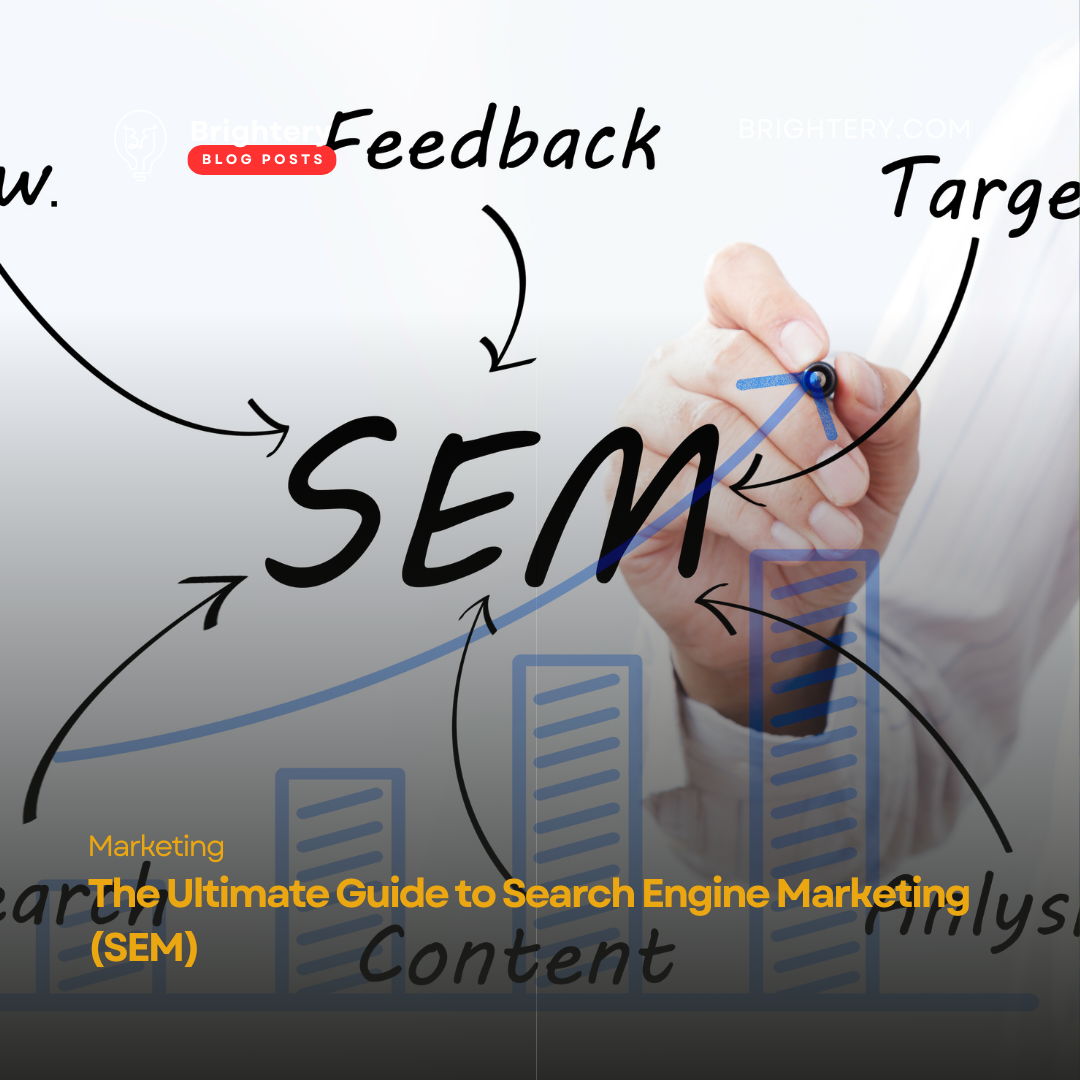Are you looking to grow your business online? If so, Search Engine Marketing (SEM) might just be the game-changer you need. In this guide, we’ll dive deep into the world of SEM, explore its components, and show you how to make the most of it for your business. Ready? Let’s get started!

Basics of Search Engine Marketing
What is SEM?
SEM is a digital marketing strategy that leverages paid advertisements to increase visibility on search engine result pages (SERPs). Unlike Search Engine Optimization (SEO), which focuses on organic rankings, SEM uses paid tactics like Pay-Per-Click (PPC) ads to gain instant visibility.
How Search Engines Work
Search engines like Google and Bing operate on algorithms that analyze and rank websites based on relevance and quality. SEM uses paid ads to skip the line, ensuring your site appears at the top of relevant search queries.
The Role of Paid Advertising
Paid ads in SEM are marked as "sponsored" and are placed prominently on SERPs. They’re a shortcut to visibility, driving immediate traffic and allowing businesses to showcase their offerings effectively.
Benefits of Search Engine Marketing
Increased Visibility and Traffic
With SEM, your website gets prime real estate on SERPs, ensuring more clicks and visits.
Targeted Audience Reach
SEM campaigns allow precise targeting based on location, demographics, and even search intent.
Measurable Results
Trackable metrics like impressions, clicks, and conversions help measure campaign success and ROI.
Key Components of SEM
Paid Search Advertising
PPC ads are the backbone of SEM. Advertisers bid on keywords, and their ads appear when users search for those terms. These ads charge advertisers only when clicked.
Keyword Research
Finding the right keywords is crucial. Use tools like Google Keyword Planner or SEMrush to identify high-value terms relevant to your business.
Ad Copywriting
An effective ad grabs attention, highlights value, and includes a strong CTA. Think of it as a mini sales pitch in a few words.
SEM Campaign Management
Setting Up Campaigns
Platforms like Google Ads and Bing Ads are popular choices. Create ad groups, choose your keywords, and define your target audience.
Budgeting and Bidding
Set daily or monthly budgets and bid strategically to get the most out of your investment. The auction system determines which ads appear and in what order.
Monitoring and Optimization
Keep an eye on metrics like CTR (Click-Through Rate) and CPC (Cost Per Click). Adjust your bids, keywords, or ad copy to improve performance.
Challenges in Search Engine Marketing
SEM isn’t without its challenges. Common pitfalls include overspending, targeting the wrong audience, or underestimating the competition. Staying proactive and adaptive is key.
SEM Tools and Platforms
Google Ads
The most widely used SEM platform, offering robust tools for campaign creation and performance tracking.
Bing Ads
A smaller but still significant platform, often less competitive and more affordable.
Third-Party Tools
Platforms like SEMrush and Ahrefs provide additional insights to optimize your campaigns.
Best Practices for SEM Success
- Write compelling ad copy with strong CTAs.
- Regularly conduct A/B testing to see what works best.
- Focus on understanding user intent to match your ads to what users are searching for.
Case Studies in SEM
Take inspiration from businesses that have thrived using SEM. Analyze what they did right and how you can replicate their success.
Future Trends in SEM
AI is revolutionizing SEM with smarter bidding strategies and automated ad creation. Additionally, voice search is changing how people find information, requiring new strategies.
Conclusion
Search Engine Marketing is a powerful tool for businesses aiming to increase visibility, drive traffic, and grow revenue. With the right approach, it can deliver exceptional results. Why wait? Start exploring SEM today!
FAQs
What is the main difference between SEM and SEO?
SEM uses paid strategies for instant visibility, while SEO focuses on organic ranking over time.
How much should I budget for an SEM campaign?
It depends on your industry, competition, and goals. Start small and scale as you analyze results.
Which platform is best for SEM beginners?
Google Ads is a great starting point due to its user-friendly interface and vast reach.
How do I measure the success of my SEM campaign?
Monitor metrics like CTR, CPC, and conversion rates to evaluate performance.
Can SEM work for small businesses?
Absolutely! With precise targeting and budgeting, even small businesses can achieve great results.

0 Comments
Post your comment